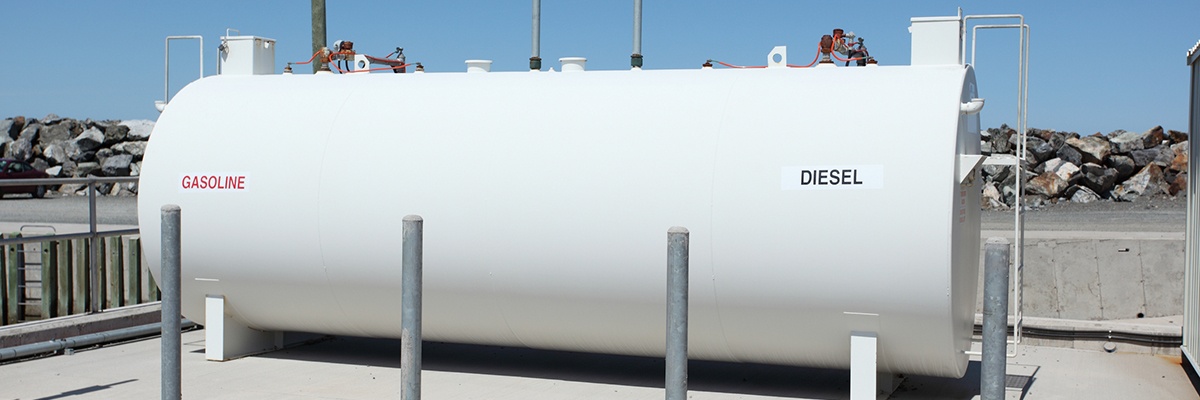
The Aboveground Petroleum Storage Act (APSA) applies to owners and operators with a total storage capacity of 1,320 gallons* or more of petroleum at a facility. The main purpose of the APSA inspection program is to verify tank facilities have prepared and are implementing a Federal Spill Prevention, Control, and Countermeasure (SPCC) Plan.
In APSA, the term “petroleum” means crude oil, or a fraction thereof, that is liquid at 60 degrees Fahrenheit temperature and 14.7 pounds per square inch absolute pressure. Please refer to the state law for additional information.
*Some facilities with less than 1,320 gallons of petroleum with a Tank In An Underground Area (TIUGA) would be subject to APSA. Please refer to the OSFM Information on Tanks In Underground Areas (TIUGAs) webpage for more information.
*Some facilities may be Conditionally Exempt from APSA requirements if they are located on and operated by a farm, nursery, logging site, or construction site and if they meet the conditions listed in HSC §25270.4.5(b).
Aboveground storage capacity of more than 10,000 gallons: |
|
Large Tank Facilities, with a storage capacity of more than 10,000 gallons of oil must use a Professional Engineer to certify the SPCC Plan. The USEPA provides resources and guidance on their website. |
|
|
Aboveground storage capacity of 10,000 gallons or less: |
|
Tank Facilities with a total storage capacity of ≥1,320 gallons* and <10,000 gallons of oil, with limited or no oil releases, are considered "Qualified Facilities" under the federal SPCC rule. There are two types of qualified facilities, Tier I and Tier II. Qualified Facilities may use ready-made templates to develop their SPCC Plan and may self-certify their SPCC Plan. |
|
Tier I facilities may prepare and self-certify their own SPCC plan. U.S. EPA SPCC Plan Template -Tier I Qualified Facilities |
|
Tier II facilities may also prepare and self-certify their own SPCC plan. SPCC Plan Template -Tier II Qualified Facilities |
Please refer to the Office of the State Fire Marshall and the US Environmental Protection Agency